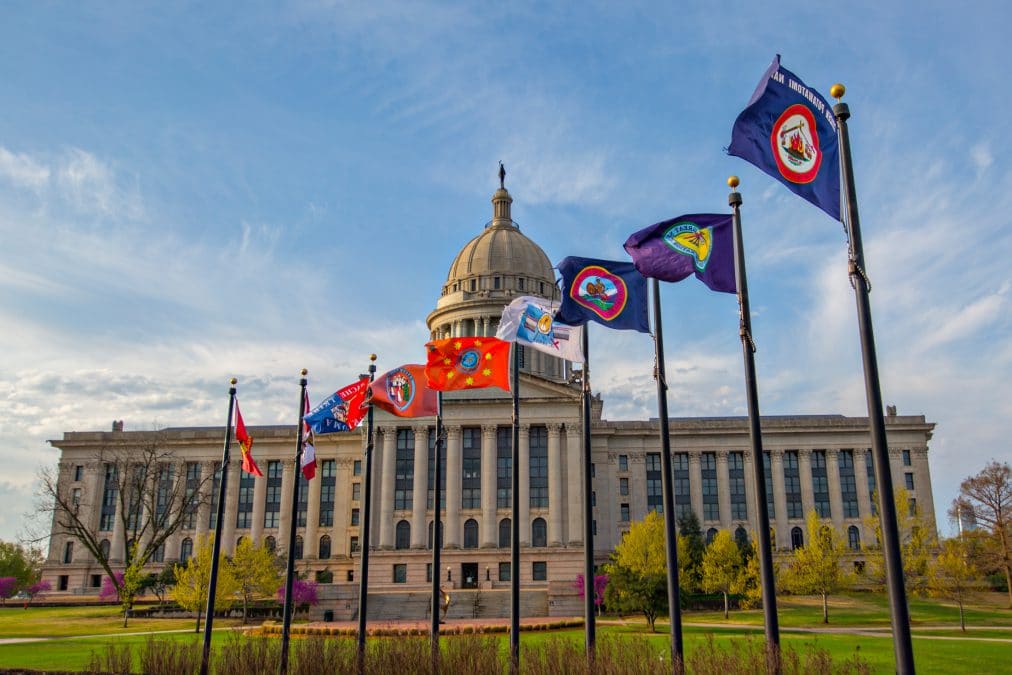On Feb. 1, 2021, the first regular session of the 56th Oklahoma Legislature is set to convene. While terms typically run from February through May, the 2021 session looks to be more hectic than usual in terms of legislative activity. As with many state legislatures across the U.S., the pandemic threw the spring of 2020 into disarray as Oklahoma’s representatives attempted to complete a session amidst a general state shutdown to slow the spread of the coronavirus.
As a result, the legislature pushed all but a few bills aside in order to pass a budget and conclude the 2020 session. A number of bills that could impact Oklahoma tribes are likely to resurface in 2021.

Ida’s Law
This legislation would make it easier for law enforcement to investigate cases involving missing or murdered Indigenous people. It is named after 29-year-old Ida Beard, a citizen of the Cheyenne and Arapaho Tribes who disappeared in 2015. The bill calls for the establishment of a special liaison within the Oklahoma State Bureau of Investigation to navigate jurisdictional issues between the state and federal agents when crimes occur on tribal land. Though it passed out of the House of Representatives last year and made it as far as the Senate Public Safety Committee, it was a casualty of the truncated 2020 session. If signed into law using last year’s bill language, its success relies on federal agencies, presumably the U.S. Department of Justice, funding the position with the OSBI.
This bill may become more relevant in the wake of the U.S. Supreme Court’s McGirt ruling that brought the issue of criminal justice jurisdictional issues in Oklahoma to the foreground.
Medicaid managed care organizations
Oklahoma Governor Kevin Stitt’s aim to have a private company manage the state’s Medicaid program is moving forward. The state will likely award the contract to a managed care organization in January or February. MCOs are a controversial topic in the state, and one has failed in the past. Many legislative members have spoken out against MCOs for increasing costs for the state over the long term rather than cutting them.
Last fall, Senator Greg McCortney (R-Ada) organized a study to obtain feedback from health care officials representing Oklahoma tribes. Given the results, the Oklahoma Health Care Authority will mandate an “opt-in” option for the state’s American Indian/Alaska Native population who participate in Medicaid programs. This option, requested by Oklahoma Indian nations, allows tribal health care programs to bill the OHCA directly for services provided to enrolled tribal citizens at the federal government rate. Those rates will result in cost savings for tribal health care providers that can be put back into medical services, which mostly serve rural Oklahoma.
In mid-December, a group of Oklahoma House Representatives signed a letter to Gov. Stitt asking him to withdraw efforts to implement a managed care program. It also asked for the development of a plan other than unilateral action.
It seems unlikely he will accede to that request. Tribal health care providers plan on working with the new privatized regime to ensure quality service for their patients. State legislators will need to determine the costs as they move toward passing a budget by May.
Gaming deductions bill
Legislators are likely to address a fix on gaming loss tax deductions that slipped in the 2020 session’s truncated timeline. Introduced by Representative Kevin Wallace (R-Wellston), HB 2667 permits the exclusion of gambling losses under Oklahoma’s $17,000 cap on itemized deductions. A 2018 bill that aimed to increase revenue for teacher pay raises set the cap. However, Oklahoma became the only state with a deduction limit for losses at a gaming facility. High stakes gamblers face tax bills on money they actually lost. Consequently, many are turning to out-of-state destinations to spend their money.
The legislation made it out of the house and to the state senate last year, but drastic changes to its provisions from that chamber resulted in the clock running out before a fix could be agreed on by the house.
The Oklahoma Tax Commission estimates the bill’s loophole closure would result in $17.8 million in lost gaming revenue; however, the Oklahoma Quarter Horse Racing Association and Oklahoma Society of Certified Public Accountants both supported the bill. Taking the OTC’s estimate at face value also ignores the tens of millions in losses that tribal gaming revenues — a portion of which go directly to fund Oklahoma public schools — would face without a legislative fix.
Tracking tribal affiliation
A bill championed by two Shawnee, Oklahoma, legislators concerning tribal affiliation tracking in public schools may get another look. Then-Senator Ron Sharp (R-Shawnee) steered the State Tribal Education Data Partnership Act through his chamber last year before it failed to get a hearing in the House.
If passed into law, it would log tribal enrollment data on Native American student populations to improve specific tribal populations’ visibility in schools. Currently, there is no mandate for this data, and it would help tribes, public schools and the state department of education.
Though Senator Sharp is no longer in the legislature, last year’s House co-sponsor Dell Kerbs (R-Shawnee) intends to champion the legislation again.
